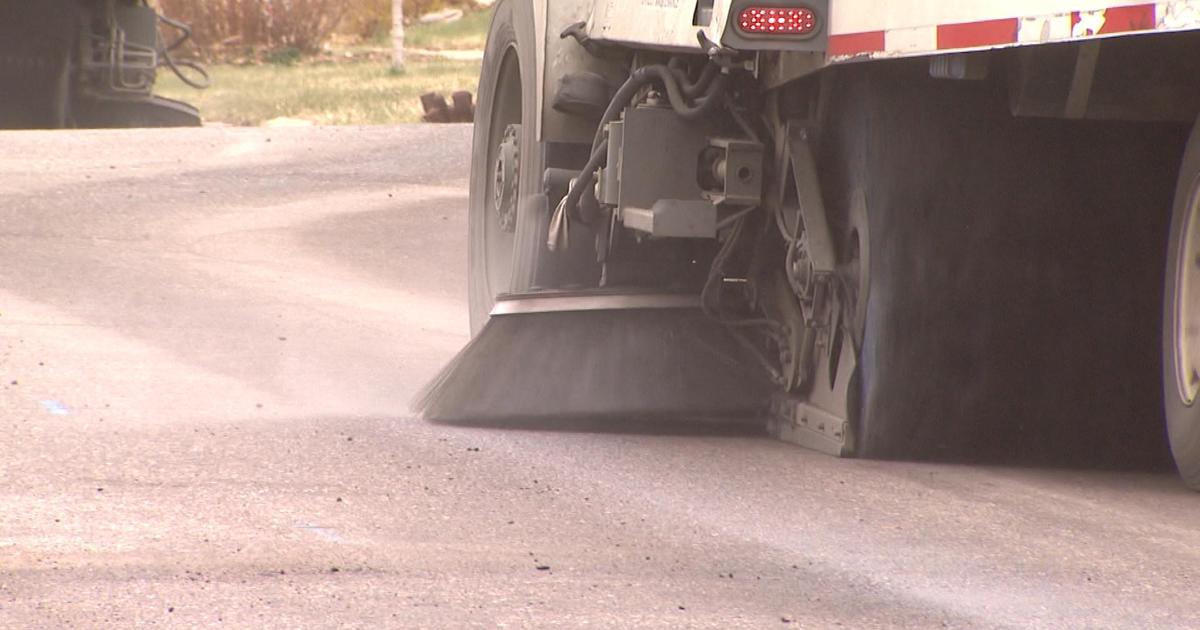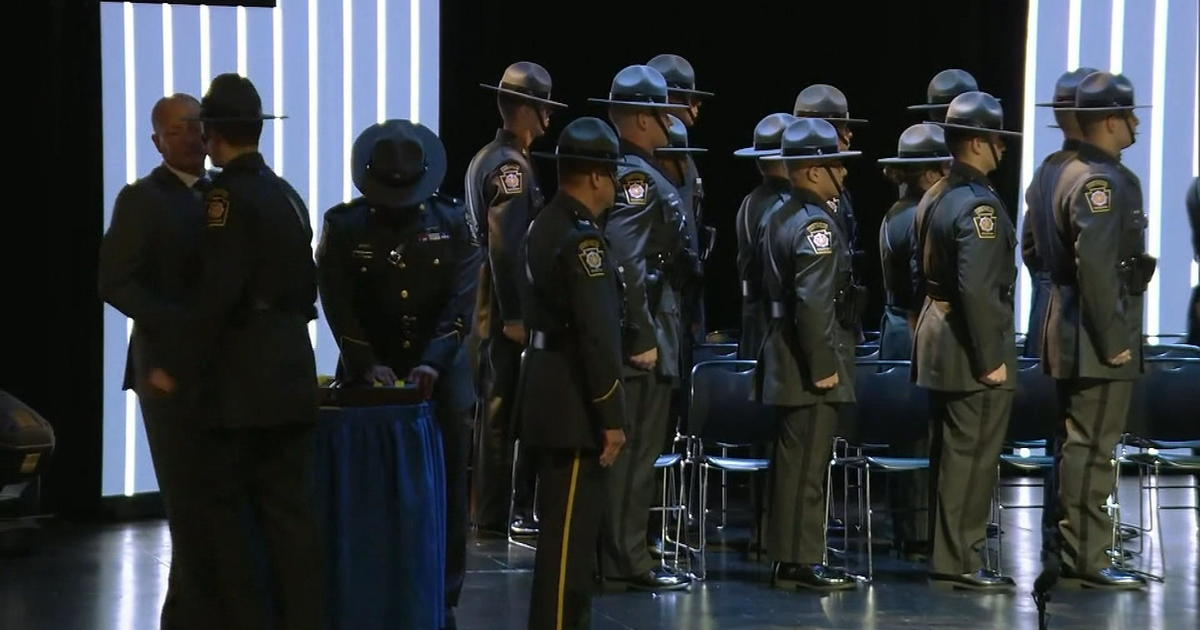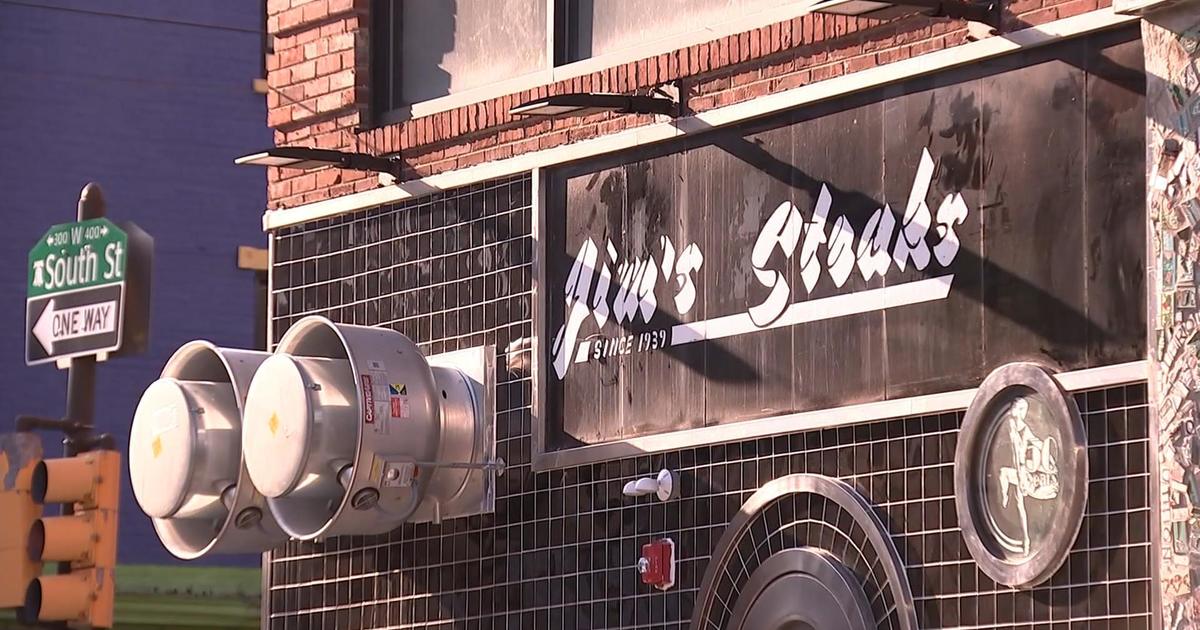Animal tranquillizer xylazine sweeping Kensington streets
PHILADELPHIA (CBS) -- Kensington has been plagued by an opioid crisis for years. Now, another drug on Philadelphia's streets is making a devastating situation catastrophic.
According to medical toxicologists at Temple Health, xylazine, a veterinary sedative, can be found in 90% of the city's dope supply.
The video you are about to see is hard to watch.
"Their children are walking amongst this," Sarah Laurel said.
When it comes to Pennsylvania's opioid epidemic, Kensington is ground zero.
"The streets are lined with garbage. You can smell infection," Laurel said. "There are hundreds of unhoused individuals without access to public restrooms, or showers, or housing, And it's sad."
Now, a powerful sedative is seeping into more than 90% of Philadelphia's dope supply.
Xylazine is a legally sold horse tranquilizer. It's cheap, easy to get and it's being mixed with fentanyl and heroin.
On the street it's known as "tranq" and people with substance abuse disorders often don't realize they've used it until their skin literally begins to decompose.
"You can just walk out to Kensington Avenue and smell the rotting flesh," Laurel said. "It's awful."
Laurel is recovering from substance abuse disorder. Her organization Savage Sisters helps those suffering with addiction.
She has been sounding the alarm on xylazine for three years.
"The only thing I can say is because we are boots on the ground here in Kensington, we're dealing with it every day," Laurel said. "We see the impact that it's having and we need to see a little bit more progression with the response."
Doctor Joseph D'Orazio is the director of medical toxicology and addiction medicine at Temple Health.
D'Orazio says they've become the epicenter of the xylazine crisis due to their close proximity to Kensington.
"At any one point in time, we probably have 50 patients in the hospital that have complications, serious complications, from injection drug use," D'Orazio said. "So you have to think that all 50 of those patients have been exposed to xylazine."
Why is xylazine leading to this necrosis, or the death of body tissue?
"There are some things that are unknown at this point in time," D'Orazio said. "We see sometimes that people are getting wounds in areas that they are not injecting, so maybe it's not such a local effect, it could be a systemic effect. Vascular effects with this drug, we probably have 15 patients in the hospital who have severe wounds that we are trying to treat."
Xylazine can knock a person out for three to five days, and because it's not an opioid, drugs like Narcan don't effectively reverse an overdose.
"The Narcan works on the part that is fentanyl there," Laurel said, "and we use the oxygen tanks on respiratory depression that is caused by the xylazine."
At the Savage Sisters' headquarters in Kensington, they regularly see the ravaging effects of these drugs.
Laurel says nothing surprises her when people walk through their doors.
"We have a gentleman that comes in here and has been coming every day who has a gaping flesh wound across his chest, right next to his heart," Laurel said.
Once a week, she and a team of volunteer nurses hit the streets.
"They'll wrap the wounds, they'll clean them out and give them their own take-home kits so they can re-wrap," Laurel said. "We do what we can, but it's a band-aid on a bullet hole."
Since xylazine isn't intended for humans, it falls into a gray area and at this point, it's not a controlled substance, but the U.S. Drug Enforcement Administration is well aware of xylazine.
The DEA recently released a nationwide report about the dangers when it's combined with illicit drugs.
"This is how it healed, it heals like a burn," Melanie Beddis said. "But this was like all open."
Recovering herself, Beddis works at Savage Sisters.
Beddis said she did not know she was using xylazine.
"I came here because this was the easiest, most convenient open-air drug market," Beddis said, "and it was 15 minutes away from where I was raised."
Her story isn't unique.
"Here's the thing. The people that we serve in Kensington are not from Kensington," Laurel said. "These children that are on the streets and unhoused are from Delco, MontCo, Bucks, Chester. They are from all over the state. They come to Kensington and they get stuck here."
What do parents need to look for?
"The wounds start as smallpox, they look almost like picking scabs on people's arms," Laurel said. "I would say the urgent cares and emergency rooms on the Main Line need to start looking for those wounds and testing for xylazine."
What is it going to take for hospitals to start testing for xylazine?
"It's got to be awareness, understanding it's in our community and affecting people," D'Orazio said. "Currently the way it stands, we need to send it out to a forensic lab that takes days for us to get a response, so it's not so helpful at the bedside when we are trying to help people."
Why are you helping these people?
"They're my friends," Laurel said. "I used to be homeless in Kensington. I do know what it feels like to need a shower, to just need somebody to know my name. I know what that feels like to be invisible."
CBS Philadelphia researched a well-known lab in Nashville that does test for xylazine, but it can take up to three days for results.
As of publishing, there are no known plans to make a test strip to detect xylazine in a patient, immediately.




